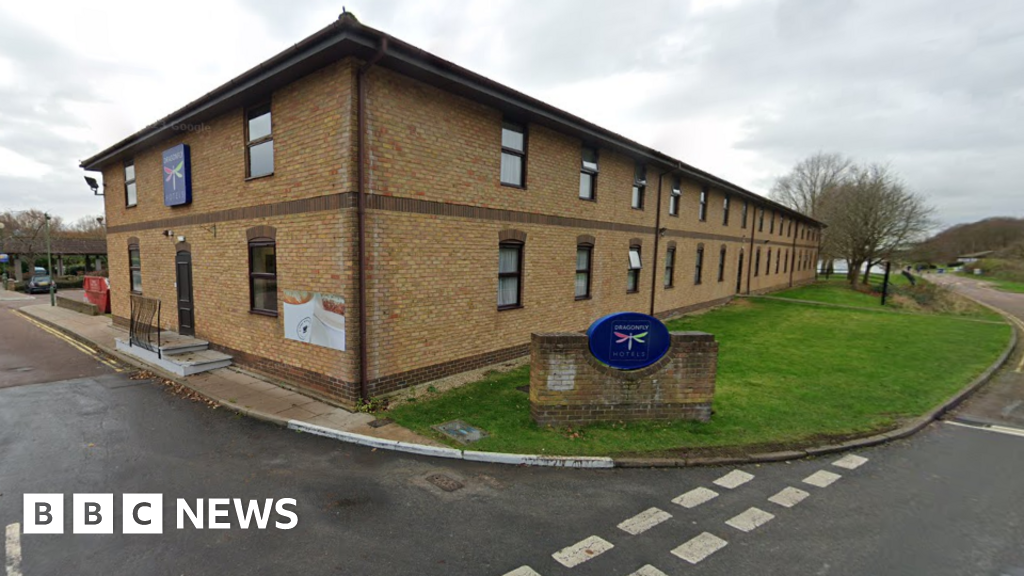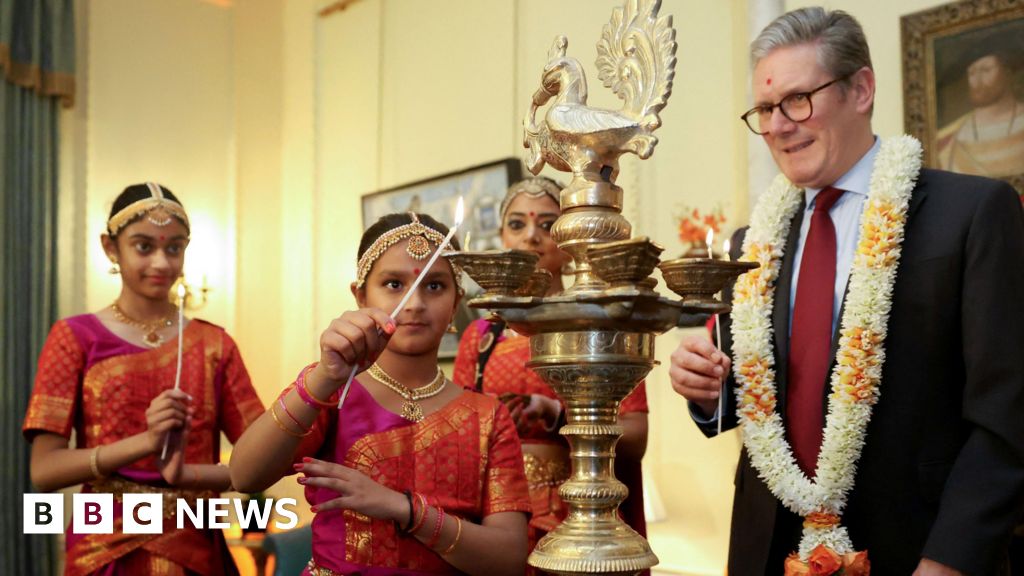ARTICLE AD BOX
By Laurence Cawley
BBC News, East
The political concerns of current students at Harlow College vary widely from mental health to urban renewal
For thousands of teenagers across England, the 5 May local government elections offer them the first opportunity to cast their votes. The BBC visited Harlow College in Essex to listen to students about the issues that matter most to them.
The educational home of more than 2,000 16 to 19 year olds, Harlow College boasts an eclectic alumni including the musician Mark Knopfler, sports journalist Reshmin Chowdhury and the author and historian Wendy Moore.
The political concerns of its current students vary widely from mental health to urban renewal and from the national level, such as health policy, to the ultra-local, such as fixing potholes.
They will soon get a chance to make those views known at the polling booth.
A third of seats at Harlow Council, which flipped to Conservative control following last year's elections, are up for grabs on 5 May.
'It is like they are trying to put make-up on a bin'
Lauren Kemsley says mental health and the welfare of teenagers are the biggest issues of concern for her
Lauren Kemsley, 19, will be voting for the first time this year.
She says mental health and the welfare of teenagers are the biggest issues of concern for her.
"I would like to see more activities for teenagers," she says. "Things for us to do because at this age we are kind of stuck.
"We are too old to be hanging around in parks like we used to, but then we're too young to do the things that adults do.
"I would like there to be more activities and social groups."
She would like to see a varied mix of activities offered and run by her local authority and not, she says, the most common offerings which tend to be sports-based.
Miss Kemsley is also concerned about the built environment in Harlow
She says her generation has been brought up in "a bedroom culture" and that, combined with the pandemic, has left many teenagers needing places where they "can mix with people our own age".
Miss Kemsley feels a lot of effort has been put into attracting new shops into Harlow while not enough time has been spent on improving the appearance of the town.
Harlow Council is currently working on a major town centre regeneration plan which includes attracting "high end retail".
"I feel like Harlow is in a gentrification process without trying to fix the substantive issues.
"For example, they are putting in all these fancy shops but are not doing anything to solve the issues that we currently have.
"It is like they are trying to put make-up on a bin."
The council says its regeneration aims include improving the town centre's public spaces. It will be seeking a development partner for the regeneration next spring.
'I think there is a lot of work to be done'
Valentino Milen, 18, is concerned about the wealth disparities and housing issues in the town
Valentino Milen, 18, says while he likes Harlow a great deal, he feels it has a number of social problems caused, in part, by a lack of jobs, a lack of good affordable housing and disparities of wealth.
According to the government's 2019 Indices of Deprivation, Harlow was the second most deprived area of Essex and among the UK's 20% most deprived areas for access to housing and services.
"There are not that many jobs and the prices of houses are very high," he says. "It creates a massive problem."
Mr Milen is also worried about a lack of properties in Harlow
The available data appears to support Mr Milen's claims.
According to the Office of National Statistics, the average house price in Harlow rose more than 15% last year from £276,899 to £319,033. The average price nationally is £295,888.
Average gross weekly pay for full-time workers is £544.80 - less than the regional average of £601.90 and the £612.80 UK average.
The percentage of people claiming out-of-work benefits in the town is 5.5% - higher again than both the regional average of 3.5% and the 4.2% national average.
The impact of such figures, he says, are social.
"It is about the respect people have for each other around here. I feel a lot of day-to-day life is about ignoring other people, they are estranged from each other."
The council is aware of the need for new affordable housing and plans to build hundreds of new council houses. It says during the first phase of its New House Building Programme, 99 homes will be completed by 2024.
It also hopes by regenerating the town centre it will bring more investment into Harlow and create more jobs.
'I don't think enough is being done'
Gracie O'Grady knows how she will be voting this election
Gracie O'Grady, 18, has already decided how she will be voting in the local election. The issues that matter most to her are schools and healthcare.
"I feel the hospital here needs a lot of work done to it," she says. "There are a lot of backlogs and queues with people waiting.
"I would like to see more action there because I don't think enough is being done."
Although she recognises that hospitals are funded centrally by government, she believes local authorities can play a key role in shaping provision through their various channels of influence.
One example is the council's Health and Overview Scrutiny Committee. Earlier this year, it emerged at a committee meeting that a replacement for Harlow's Princess Alexandra Hospital had been delayed.
Initially expected by 2015, the committee heard it might not now be built until 2028.
Miss O'Grady thinks more should be done to improve Harlow town centre
With a younger sibling still in secondary school, she is also concerned about the level of staffing in some Harlow schools.
"They are having to have two classes to one teacher and go into a hall to be taught because there is not enough staff," she says. "The quality [of education] is therefore lower."
While she accepts that Covid-19 continues to affect schools, she says even before the pandemic "class sizes were high".
'There are potholes everywhere'
Kane O'Connor, 18, says he wants the council to spend less on "vanity projects"
"I think there are three key points that are most blatantly obvious at the local and county level," says Kane O'Connor, 18.
"One, it is obvious to anybody coming into Harlow that the conditions of the roads are atrocious - there are potholes everywhere. You can barely drive anywhere without it being like you're dirt coursing around everywhere.
"Point two is crime and anti-social behaviour. I think in the general consciousness, it is more present."
Mr O'Connor says people out and about at night in Harlow need to be "alert" because of what he claims are poorly-lit walkways and underpasses.
According to Essex Police data, the number of reported antisocial behaviour incidents has dropped more than 50% in the past year, from 4,053 to 1,955.
Crime overall in Harlow, however, has risen about 15% from 9,725 incidents to 11,151.
Mr O'Connor would like better policing and community engagement
He would like to see more money spent on policing and community engagement projects in the town.
Third, he says, he would like to see council money only spent on the essentials and for the amount of council tax people pay to be reduced.
"There are things, like the roads, which affect everybody - they need fixing first."
Photography by Laurence Cawley
Is there an election in my area?
Find BBC News: East of England on Facebook, Instagram and Twitter. If you have a story suggestion email eastofenglandnews@bbc.co.uk
The BBC is not responsible for the content of external sites.

 2 years ago
24
2 years ago
24








 English (US)
English (US)